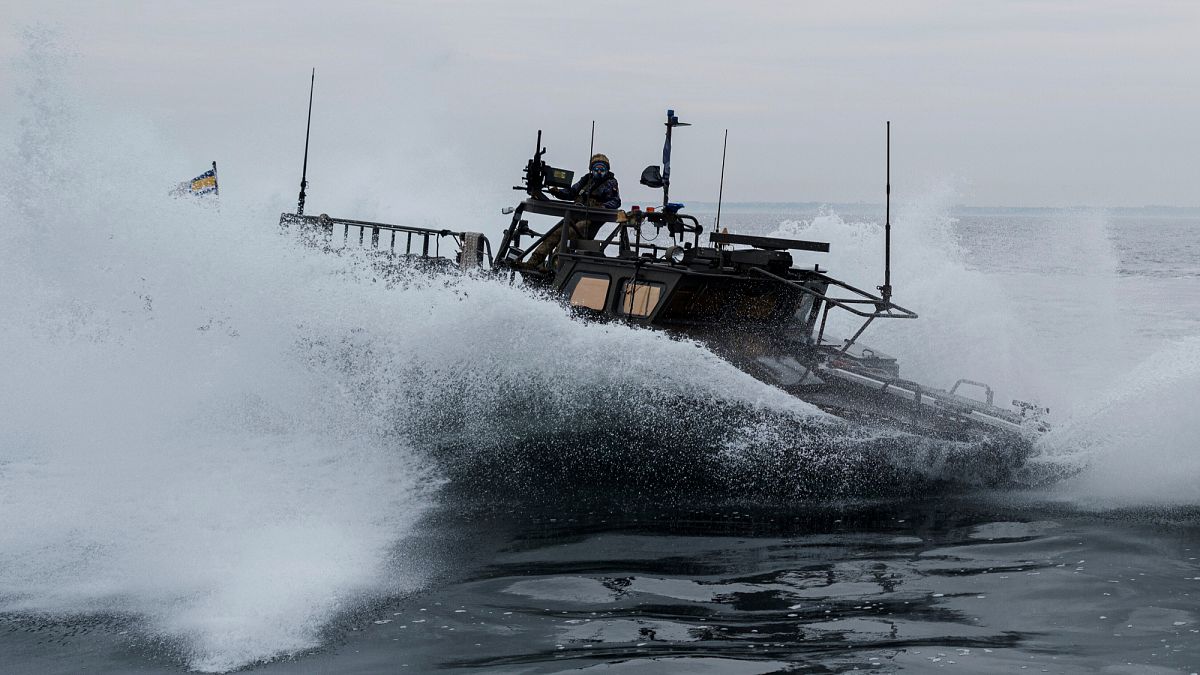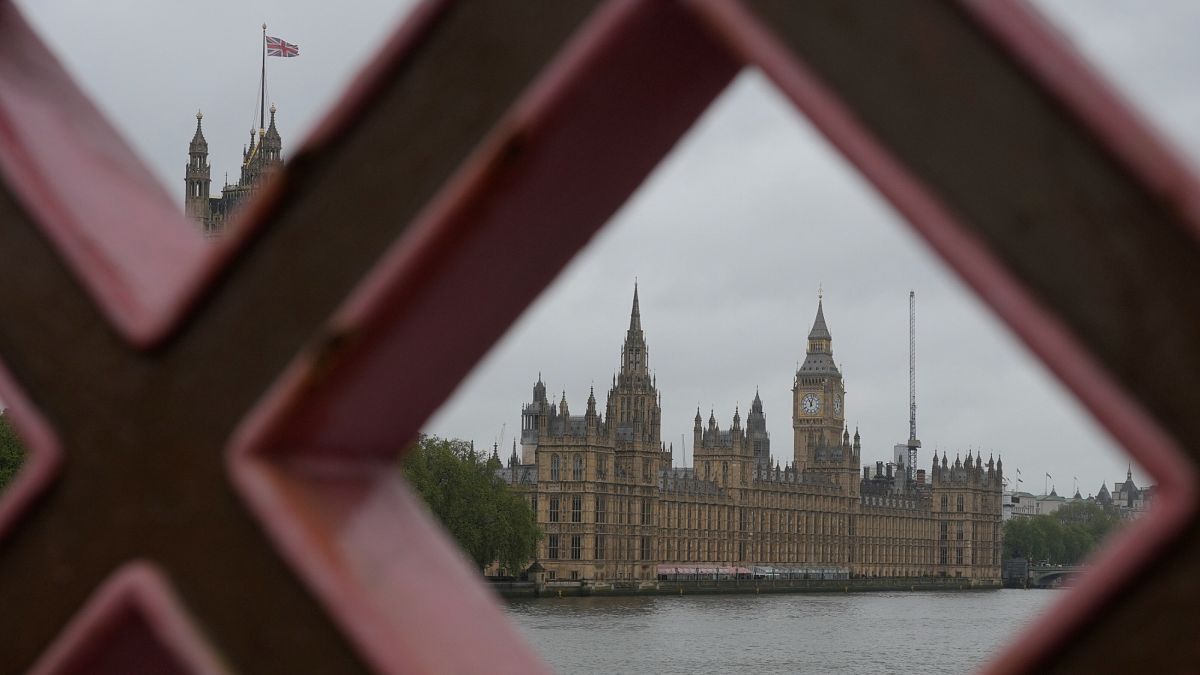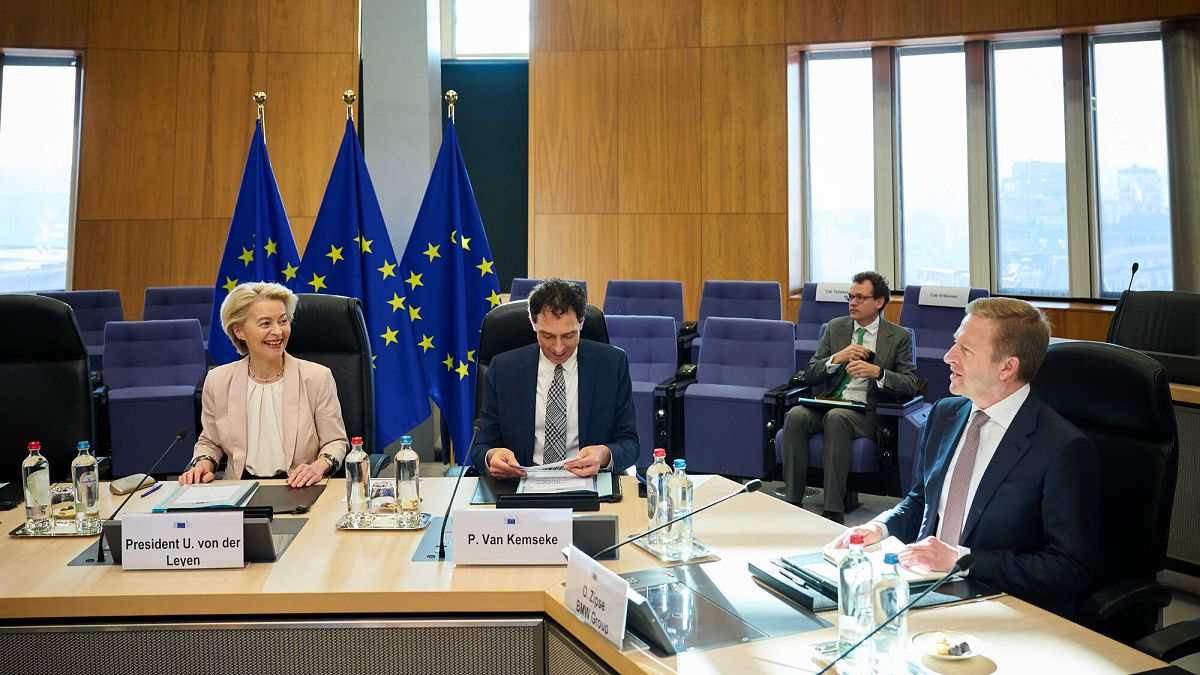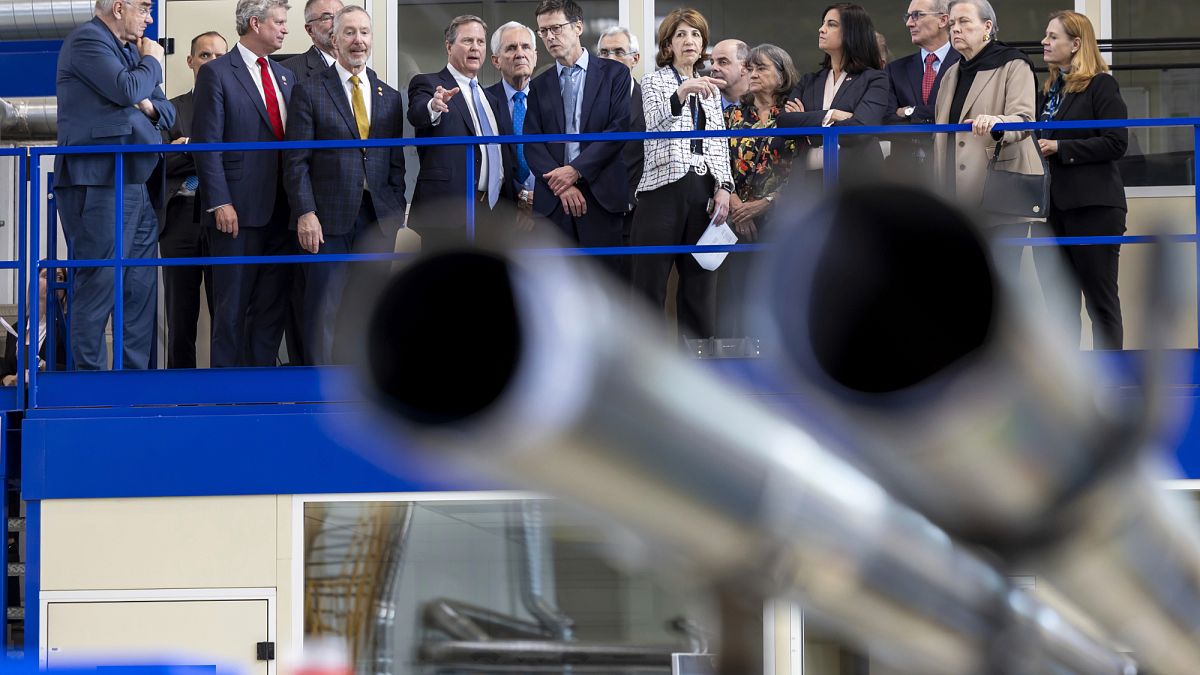We take a look at the less publicised tech that’s on display at the Paris Motor Show at the Porte de Versailles expo centre this week.
The Paris Motor Show, back for its 90th edition this week, is hyperfocused on electric mobility. So far, we’ve seen the world premiere of various types of new electric cars from makers in France, as well as elsewhere in Europe and Asia.
However, there’s always other tech that is being showcased at the event, including designs for green aviation.
Here’s a rundown of some of the most eye-catching but lesser-known innovative technologies that were on display this week: from the future of microcars and delivery trucks, to electric planes and go-karts.
'License-free' electric cars
Some of France’s biggest car manufacturers debuted the latest models of "license-free" electric cars, otherwise known as microcars or quadricycles.
These microcars are generally light, fuel-efficient mini cars with small motors that are mostly used in cities for local transportation.
The European market for these microcars is valued at $437.4 million (€401.6 million) and is expected to almost double by 2030, a study by consulting firm Stellar Market Research found.
Mobilize, the microcar brand of giant French manufacturer Renault, showcased two new microcars for the first time at the heart of Paris’ Porte de Versailles convention centre.
Renault’s Duo, first seen in a demonstration at the 2022 edition of the show, is a two-seater car just over a metre long that anyone above the age of 14 can drive.
The car gets up to 45 km/h and has a range of 161 km before it needs a recharge.
The car can recharge in 5.5 hours by being plugged into a "standard socket".
Its sister Bento, known as the brand’s "micro-utility" car because of its 868-litre trunk, also made its first appearance on the show floor.
Electric delivery truck 'designed for cities'
Among Renault’s five stands at the Paris Motor Show was its latest take on the transport vehicle of the future.
The 2024 Estafette Concept incorporates some features synonymous with Renault’s past designs, including the 3.5-metre length of its Kangoo L2 model, the agility of the Clio full hybrid, and the payload of the Trafic L1H2.
Inside the Estafette is what’s called software-defined vehicle architecture (SDV) that will let transport drivers get maintenance updates in real-time, according to the French manufacturer.
The truck was designed by Flexis, an independent group launched by Renault, Volvo, and CMA group.
The Estafette model is a "compact yet spacious" electric van that is "designed for cities" and the needs of professional drivers.
The van is named after Renault’s 1959 Estafette van that "fit the entire powertrain," including the car’s engine and transmission in the front of the vehicle, to free up backspace in a van for loading.
The future of green plane travel
Besides the EVs, the Paris Motor Show also showed off a model of a 100 per cent green energy-powered plane.
Integral E, built by French startup Aura Aero, is a full-electric two-seater plane built out of wood and wood-carbon that’s designed for training, travel, and aeronautics.
The aircraft is about 7.2-metres long that can fly for around 60 minutes or less.
The company said its goal is to help meet emission reduction targets to 55 percent by 2030, and to later achieve carbon neutrality by 2050.
Aura Aero’s Integral hasn’t been flown yet, but preorders are already placed and will be fulfilled in the months to come.
The Integral E foreshadows a new regional airline where "low carbon" lines will open up between smaller cities and areas that are otherwise not serviced by plane or train, the website said.
The company is building a 19-place Electric Regional Aircraft (ERA) that will be used for this airline before the end of the decade.
The ERA should reduce emissions on a flight of 200 nautical miles in altitude by 80 percent, the company estimates of its project.
What if go-karting was electric?
Groups of eight zoomed around a track in what looked like a typical go-kart in a corner of the exhibition hall at Porte de Versailles.
But, as it turns out, these are go-karts of the future: a fully electric model that is rechargeable within eight minutes so it can run successfully on outdoor or indoor circuits.
The Speed2Max kart is the "fruit of 27 years of development and innovation," that is made out of 100 percent recycled materials by a family-run business in Clermont-Ferrand, France, according to the company.
The kart is equipped with either a lead gel or lithium battery and its matching charger that sits on the kart, which gives it an "optimal charging time and unrivaled battery life" of up to 90 minutes.

 5 months ago
57
5 months ago
57






 We deliver critical software at unparalleled value and speed to help your business thrive
We deliver critical software at unparalleled value and speed to help your business thrive






 English (US) ·
English (US) ·